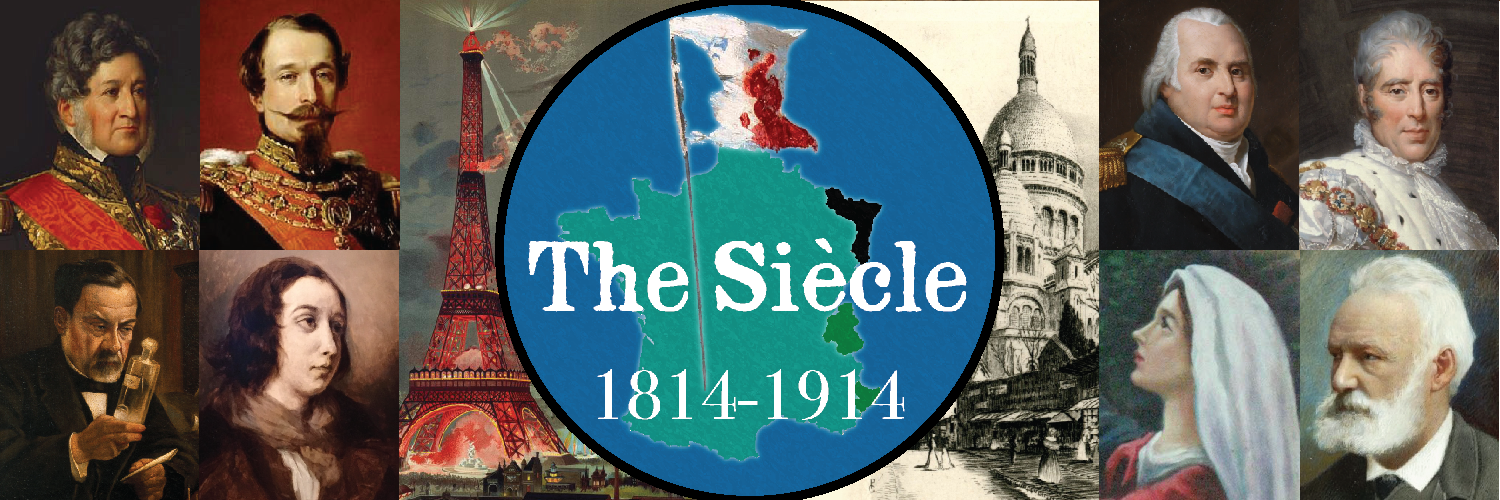Supplemental 1: The Hundred Homers
In Episode 2 of The Siècle, I told the story of the Hundred Days, Napoleon Bonaparte’s famous return from exile on the island of Elba to reclaim the French throne for a few heady months until his final defeat at Waterloo.
The podcast was a good format to tell that story. But I may have found a better one.
Below is the story of the Hundred Days in the format this epic story has been waiting two centuries for: GIFs from the celebrated animated series, The Simpsons.
My thanks to Kevin Marcou and John Anderson for their help assembling this grand collection.
Remember, to learn more, subscribe to The Siècle, my history podcast exploring France from 1814 to 1914.
(Depending on your connection, you may want to give this page a few moments to load the many, many GIFs.)
We begin in early 1815. Meet King Louis XVIII of France.
Louis has just been restored to his throne to genuine applause.
It’s good to be the king.
But some of Louis’s people aren’t content with how he runs things.
He couldn’t please both his hard-line supporters and his new subjects who had served his predecessors.
Meanwhile, Louis’s predecessor Napoleon Bonaparte was finding his exile on the island of Elba less than stimulating.
Napoleon took his chance and escaped from his island exile.
Landing in France, Napoleon was expecting a hero’s welcome, but the towns of Provence were unfriendly.
Back in Paris, King Louis ordered his underlings to deal with the situation.
Napoleon went from town to town in rough terrain, getting rebuffed time and time again.
Matters came to a head at the small town of Laffrey, where Napoleon was met by a larger force of French soldiers.
But he won them over with a speech.
As Louis’s army rapidly switched to Napoleon’s side, the king pondered making a stand, but then fled.
Napoleon promised he was a changed man.
Many French government officials swiftly swore allegiance to their returned emperor.
And Napoleon relished being back in the center of things.
The powers of Europe learned of Napoleon’s return to power with alarm.
But they responded swiftly.
All across Europe, armies mobilized for war.
Louis’s younger relative, the duc d’Orléans Louis-Philippe, quietly schemed to replace him.
But found it tough to recruit a critical mass of supporters.
Meanwhile Louis hid out in Belgium, but he didn’t have many supporters as Napoleon closed in.
Out in the countryside, armies prepared for battle.
The fighting started at the town of Ligny, where Napoleon sent the Prussians fleeing.
But Napoleon didn’t pursue them with his usual vigor.
This gave forces under the Duke of Wellington time to dig in.
And so battle commenced at a town called Waterloo.
The fighting was fierce and casualties high.
But the English, Dutch, and Scottish soldiers under Wellington held firm.
And eventually, the French retreated, surrendered or were killed.
Napoleon fled back to Paris to try to salvage his regime, but found little support.
Louis-Philippe failed to build any support, and the Allies decided to restore Louis again.
The British and their allies, meanwhile, invaded France.
They took Louis with them, “in the baggage-train of the foreigners.”
Napoleon and his loyalists fled for their lives.
But Napoleon was captured as he tried to escape to America, and hauled off to an even more remote island prison, St. Helena.
And Louis re-entered Paris to a more muted reception than his first restoration the year before.
Officials hastened to proclaim their loyalty to Louis.
Louis’s prize for all this? A divided, war-torn kingdom under foreign military occupation.
You can learn about how Louis and France dealt with the aftermath of Waterloo in podcast form in the forthcoming Episode 5 of The Siècle: The White Terror. Subscribe to the podcast to learn all about this fascinating period of France in between Napoleon and World War I!
This story has featured:
- Homer Simpson as King Louis XVIII
- Sideshow Bob as Emperor Napoleon Bonaparte
- Bart Simpson as Louis-Philippe
- Mr. Burns as Klemens von Metternich
- Kent Brockman as Joseph Fouché
- Üter as Marshall Gebhard von Blücher
- and Krusty the Clown as Benjamin Constant
